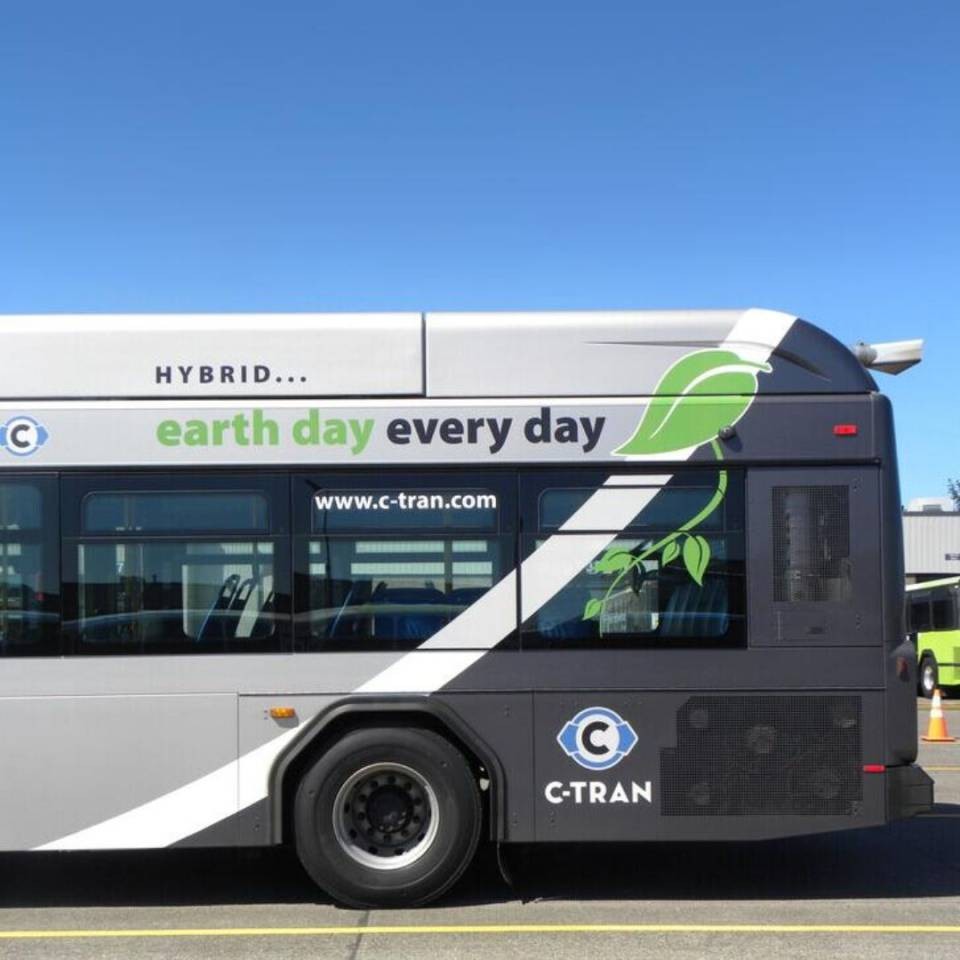Biz Spotlights
Green Business Spotlight: C-TRAN
The Clark County Green Business team sat down with Eric Florip and Tim Shellenberger from C-TRAN to discuss their sustainability initiatives and how C-TRAN plans to celebrate Ride Transit Month, a monthlong celebration of transit that occurs every June. Read on to learn more!
Can you describe the overall sustainability messaging of C-TRAN?
"Sustainability is the core of what we do as a transit agency. We're proud to provide a service that helps individuals and communities improve their environmental impact. At C-TRAN, we have also worked to improve our own practices of what we can do to walk the walk, so to speak, and make sure that we're living up to the promises that we're providing to our community.
We're continuously looking for ways to improve how we operate as an agency to carry out that mindset throughout the organization, in addition to providing the service that helps others outside of the organization improve their own habits as well."
What strides have you made in the past year to achieving your sustainability goals?
"The biggest and most visible stride we have recently is C-TRAN rolling out our first battery electric buses into service early last summer – our first zero-emissions vehicles in our fixed-route fleet! We were able to replace 10 carbon pollutant transit vehicles that couldn't be repurposed for transportation needs and turned them into scrap metal to be used in other ways.
And we've been pleasantly surprised with a few things on the battery electric buses, the efficiency of them as far as kilowatts per mile, where we are seeing a pretty consistent operating range, an operating range of about 160 to 180 miles on one single charge.
This first step in our transition to zero emissions is part of our larger initiative that we plan to work toward in the next 15 to 20 years."
What measures do you take to minimize waste generation within your business? Do you encourage composting for your employees and customers? If so, how?
"One of our most popular sustainability initiatives is our plastic coffee pod recycling programs. We collect our coffee pods from our operations and maintenance employee areas across the organization and send them off to TerraCycle to be recycled and the coffee grounds to be composted.
Another way we strive to minimize waste is through waste audits we've conducted in partnership with Waste Connections to take stock of our recycling and solid waste collection areas at our facilities and what's there, what should be there, what shouldn't be there. This has made a measurable difference in our recycling practices and waste reduction, especially after sharing the findings with our employees.
As we've done subsequent waste audits, they have shown an improvement in what's being donecorrectly or, you know, ending up in the right place. So that's been encouraging to see as well."
How do you engage employees in sustainable initiatives? What steps have you taken to promote a culture of sustainability among your staff?
"C-TRAN has a really active green team, which is an employee-led group that's been in place for a number of years. The green team was really the group that kind of spearheaded C-TRAN becoming a certified Green Business several years ago.
That group has done a great job engaging employees, and our recycling coffee pod success was due to them. They also do public-facing events. We just had a plant swap that our green team hosted at one of our transit centers that was open to employees but also open to the public. They encouraged folks to bring a plant to share, take a plant home. And we had a little seed activity that was there for folks as well.
We've also participated in tree plantings at different times throughout the year with outside groups. For example, we've partnered with Friends of Trees to do a planting at the Fishers Landing Transit Center last year. And anytime we do one of those as a green team, we often encourage our employees to participate and offer that as a volunteer opportunity for anybody who would be interested in joining.
Finally, we have been working to reduce our use of single-use plastic water bottles by providing reusable water bottles for employees across the company. Through the efforts of our inventory manager and waste audits, we noticed we were too dependent on single-use water bottles, and by providing and encouraging employees to use reusables, we have reduced our water in that way as well."
Please tell us any other ways your company supports our community.
"Here at C-TRAN, it's larger than sustainability. We operate under the mantra 'our community, our promise,' which really encapsulates a mindset that we are more than a transit agency. We're more than just about routes and schedules and stops.
We try to be present in the community in a way that supports the folks that we work with, the folks who use our service, but also the folks who may not use our service. We want to make sure that we're a good community partner and making good use of the resources that we have and the assets that we have in the community.
We also are a member of the Northwest Interagency Cooperative Grounds Equipment (and) Maintenance which helps us collaborate with our partners, from everything from the Washington State Department of Transportation to the city and the county public works and public utilities.
We also want to open up access to another alternative fuel, hydrogen, that we're working on here at C-TRAN to our partners across the Northwest."
What are your company's future sustainability goals for 2024 and beyond? How do you plan to hold your company accountable for achieving them?
"The board here at C-TRAN has recently adopted our zero-emission bus transition plan, and our first battery electric buses are part of that, and our hydrogen fuel cell buses are part of that larger vision. This plan is a living document, intended to be able to change with the alternative fuel technology landscape as it changes.
We hope to become a fully zero-emission fleet by 2040.
As a transition plan over the course of a number of years, we want to make sure we're responsibly making good use of the assets we already have and making sure they're going to go through their useful life before we, for example, decommission a bus that's still perfectly in good order. But one of the things we're also doing in that interim time between now and 2040 is using a renewable diesel blend on just about all of our vehicles, and that really goes a long way in reducing our emissions in that meantime before we get to that end point of the transition plan."
Is there anything else you would like to talk about that you feel we haven't covered here?
"We're excited for Ride Transit Month! We're excited to have June officially proclaimed as Ride Transit Month in collaboration with the city of Vancouver and Clark County."



